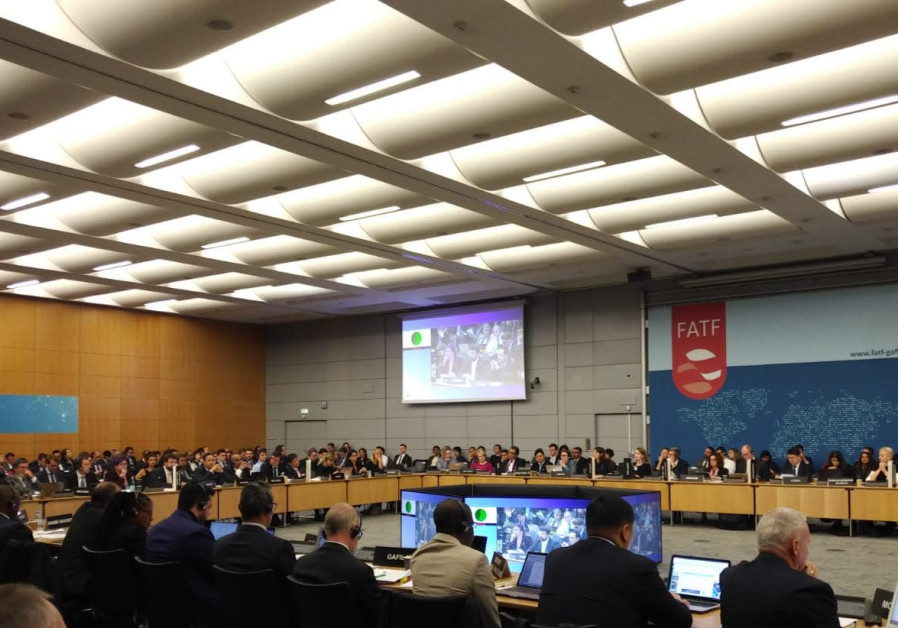FATF gives Iran until June to comply with anti-terror financial oversight

FATF conference. (photo credit: Courtesy)
The Financial Action Task Force (FATF) on Friday gave Iran until June to come into compliance with anti-terror financial measures or said it will face tougher financial oversight.
At the same time, the influential global financial organization said it would “continue the suspension of counter-measures,” for the time being, giving the Islamic Republic.
After years of campaigning and modernizing its financial counter-terror apparatus, Israel joined the FATF in December. Add that to the fact that the current FATF presidency is held by the US, and there had been raised anticipation that the major February meeting which concluded Friday might lead to a heavier crackdown on Iran – this week’s meeting was the first time Israel attended as a full member.
The mixed message that came out Friday means Tehran is not yet under increased pressure, but the June ultimatum was more specific and threatening than the typically mild-sounding statements that the organization tends to put out a few times a year.
Since the 2015 Iran nuclear deal, FATF has generally given the Islamic Republic more breathing space, taking its cue from its EU members who are still trying to hold the deal together despite US opposition.
Regarding Iran, the FATF statement said that, “While welcoming the passage [by Iran] of the Anti-Money Laundering Act, the FATF expresses its disappointment that the Action Plan remains outstanding and expects Iran to proceed swiftly in the reform path to ensure that it addresses all of the remaining items.”
“If by June 2019, Iran does not enact the remaining legislation in line with FATF Standards, then the FATF will require increased supervisory examination for branches and subsidiaries of financial institutions based in Iran,” said the statement.
In January, Iran passed some new measures for countering terror financing, but the country still is having internal disagreements about finalizing certain other measures which FATF has been pressing Tehran on in recent years.
Moreover, “The FATF also expects Iran to continue to progress with enabling regulations and other amendments. Iran will remain on the FATF Public Statement until the full Action Plan has been completed.”
The FATF Public Statement also mentions North Korea and is usually both a sign of shame and of potentially facing a financial crackdown for being too weak on combating terror financing.
“Until Iran implements the measures required to address the deficiencies identified with respect to countering terrorism-financing in the Action Plan, the FATF will remain concerned with the terrorist financing risk emanating from Iran and the threat this poses to the international financial system,” said the statement.
In addition, the FATF called “on its members and urges all jurisdictions to continue to advise their financial institutions to apply enhanced due diligence with respect to business relationships and transactions with natural and legal persons from Iran,” including “(1) obtaining information on the reasons for intended transactions; and (2) conducting enhanced monitoring of business relationships.”
Join Jerusalem Post Premium Plus now for just $5 and upgrade your experience with an ads-free website and exclusive content. Click here>>






Comments are closed.